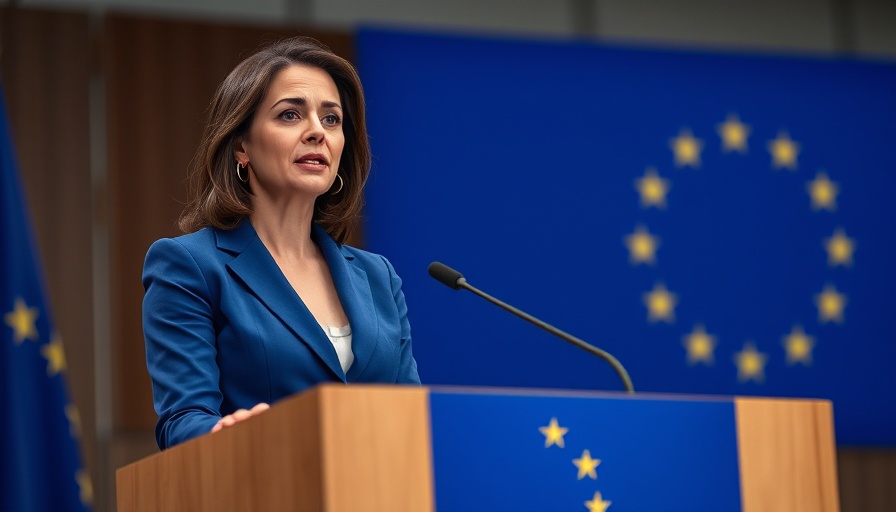
EU Unveils Sweeping Defense Spending Plan Amid Global Tensions
In a bold move signaling readiness to bolster its military capabilities, European Commission President Ursula von der Leyen announced a plan that could mobilize an unprecedented €800 billion (approximately $841 billion) for defense spending across the European Union. This considerable increase is not merely a reaction to recent global tensions but rather a commitment to long-term security and self-sufficiency.
Understanding the Urgency: The Context Behind the Spending
This new initiative comes at a time when Europe is keenly aware of the increasing security threats it faces, particularly due to the ongoing situation in Ukraine and shifting geopolitical alliances, notably with the United States. With the U.S. reassessing its military commitments, EU leaders recognize the necessity for Europe to adopt greater responsibility for its own defense. Von der Leyen highlighted the urgent need for action during a recent press conference, stating, "Europe is in its era of rearmament," and added that this financial injection is essential for both immediate and future security needs.
The Strategic Components of the 'ReArm Europe' Plan
The proposed defense spending is structured around several key areas of investment. This includes €150 billion allocated as loans for member states to enhance their military capabilities in critical domains such as air defense, artillery systems, ammunition production, and cyber defense. Additionally, it aims to activate a fiscal escape clause allowing countries to exceed strict budget rules in order to ramp up defense spending without penalties.
Fiscal Implications for Taxpayers
While the scale of this military expenditure is substantial, taxpayers across the EU need to comprehend its implications. This expenditure translates directly into budgetary commitments that will influence national finances for years to come. However, there is a strategic angle: increased defense spending is expected to stimulate the economy and potentially create jobs within the defense sector. For taxpayers concerned about financial responsibility, the call for better accountability and transparent handling of these funds will be crucial.
The Potential Impact of Strengthened European Defense
Investing in defense is often viewed through the prism of national security, but it holds broader implications. A united European front could deter aggression and promote regional stability. Moreover, by equipping member states with robust military capabilities, Europe may lessen its dependency on external powers for security, thereby enhancing its sovereignty on the global stage.
As the EU moves to implement this comprehensive spending plan, it is paramount for citizens to stay informed about how these initiatives can also inform strategic tax deductions and financial planning. Understanding government spending trends can empower taxpayers in their own financial decision-making, particularly when considering potential deductions related to savings from defense contracts or economic stimulus.
Conclusion: A Call for Vigilance and Prudence
While the ambition to bolster defense spending can evoke concern regarding fiscal responsibility, it also presents an opportunity for Europe to redefine its position in global politics. The ReArm Europe plan signifies a historical pivot towards self-sufficiency that, if managed well, could lead to enhanced security and prosperity for all EU citizens.
As taxpayers, it is important to engage with how these defense expenditures might affect your financial strategies and potential tax planning opportunities. Stay proactive in managing your finances amidst these significant shifts.
 Add Row
Add Row  Add
Add 




 Add Row
Add Row  Add
Add 

Write A Comment